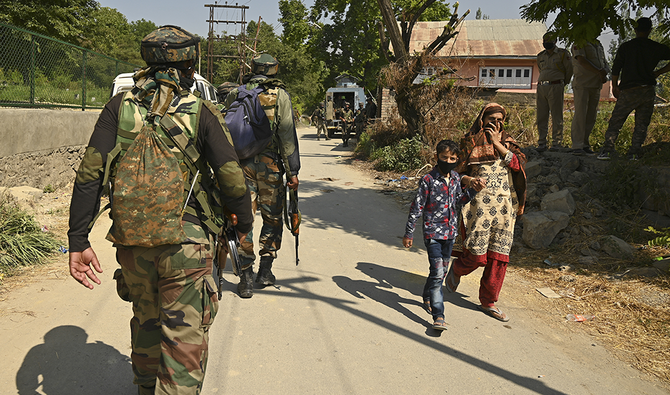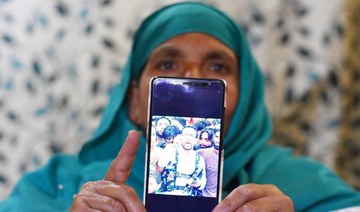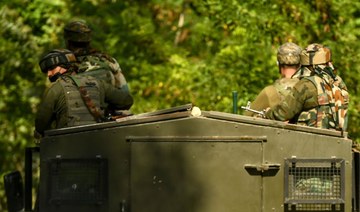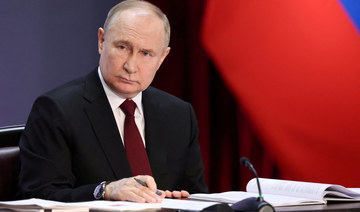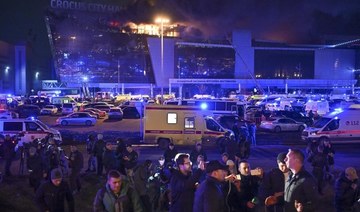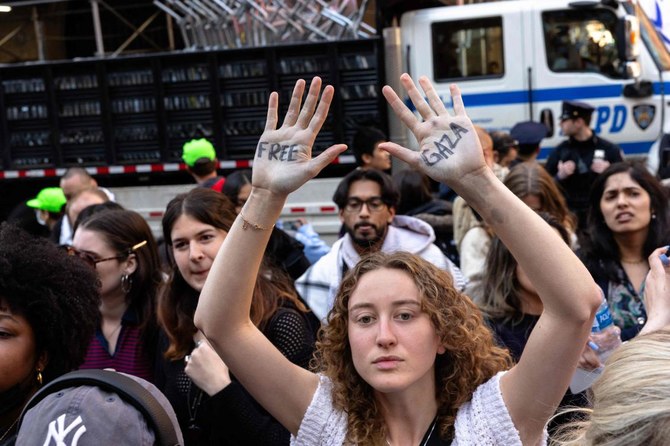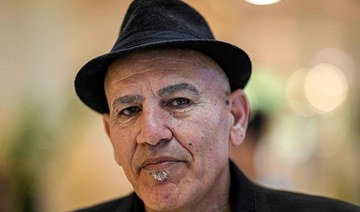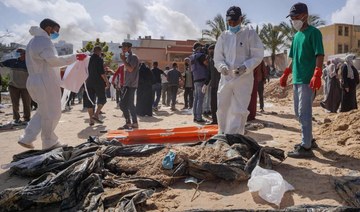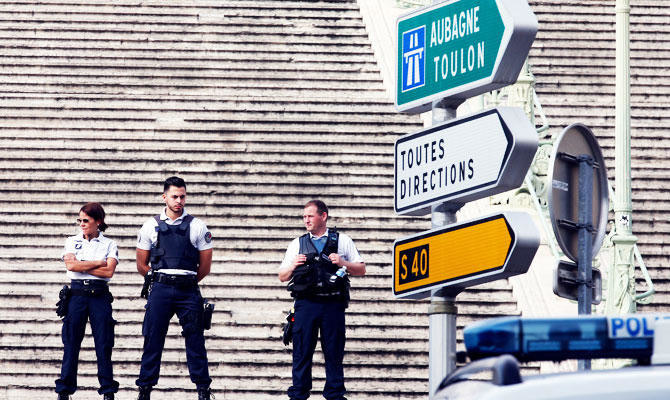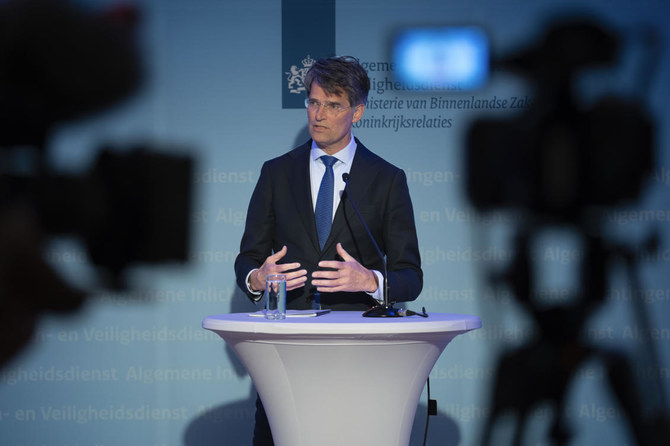NEW DELHI: Fears of demographic engineering in Jammu and Kashmir are coming true following the Indian government’s acceptance of 25,000 residency applications from outsiders.
In April Prime Minister Narendra Modi introduced a new set of laws giving domicile rights to non-Kashmiri Indians, a move which analysts said was aimed at altering the demographic character of the country’s only Muslim-majority region.
Reports indicate that more than 33,000 residence applications have been received, mostly in the Hindu-dominated Jammu region, and 25,000 of those have been accepted since mid-May. The local government spokesperson refused to comment.
Those who have lived in the state for 15 years, or studied there for seven, are eligible to become permanent residents. Registered migrants and the children of central government officials who have served in Jammu and Kashmir for a period of 10 years are also allowed to acquire domicile certificates.
Earlier this week Navin Kumar Choudhary, a resident of the eastern state of Bihar who was a top bureaucrat in Jammu for 26 years, became the first non-local official to get a domicile certificate under the new law.
“All our misgivings about the new domicile rules in Jammu and Kashmir are coming to the fore,” the state’s former chief minister and National Conference (NC) leader Omar Abdullah said in a statement on Friday. “The NC opposed the changes because we could see a nefarious design behind the changes,” he said.
NC spokesman Imran Nabi on Saturday described the development as “the last nail in the coffin and injustice” to the people of Kashmir. “This is a direct attack on our land and jobs,” he told Arab News.
According to the region’s former ruling People’s Democratic Party, New Delhi was seeking to alter Kashmir’s identity.
“As the agenda unfolds, it becomes clear that along with the intended demographic change, the target is the jobs, natural resources, cultural identity and everything that the people of Kashmir had tried to save by acceding to India with firm constitutional guarantees,” it said in a statement.
Turmoil in the state intensified last year when New Delhi annulled Article 370 of the country’s constitution, which had guaranteed it special autonomous status as well as granting locals exclusive land and job rights. The abrogation sparked widespread anger, which was met with a brutal response from India’s military.
The central government also divided the state into two union territories - Union Territory of Ladakh and Union Territory of Jammu and Kashmir. They are directly governed by a New Delhi representative and their local assemblies have little political and administrative authority.
Anuradha Bhasin, the Jammu-based editor of the leading English language daily newspaper the Kashmir Times, said that the aim of the domicile law was to change the demography and “disempower” local people.
“It is difficult to say who these people are who have applied for domiciles,” she said. “But what is surprising is the ease with which the applications have been processed ... This raises a question mark."
Srinagar-based Hina Bhat, from the ruling Bharatiya Janata Party, saw no harm in the new rules.
“After the abrogation of Article 370, it was bound to happen,” she told Arab News. “If the people of Kashmir can buy land outside the region, in Delhi and all, what’s the harm if people from Delhi buy land in Jammu and Kashmir? I feel that it will add value to the politics of the state. Even before the removal of Article 370, outsiders were having land in the valley on lease and I don’t think it changes much now with the domicile law.”
Kashmiri analysts and rights activists remain worried, however.
“This is the natural corollary to the abrogation of Article 370,” Jammu-based civil rights advocate Anil Sethi told Arab News. “The definition of domicile is too vague and can be manipulated by anyone. I am slightly worried and anxious with the change in the domicile law.”
Srinagar-based political analyst Altaf Hussain feared that the new residency rules would only heighten divisions.
“This will further accentuate the resentment and wipe out the middle ground in the valley,” he said. “The sense of alienation is stronger than before and even those who were pro-India are feeling let down and have a strong sense of helplessness.”



